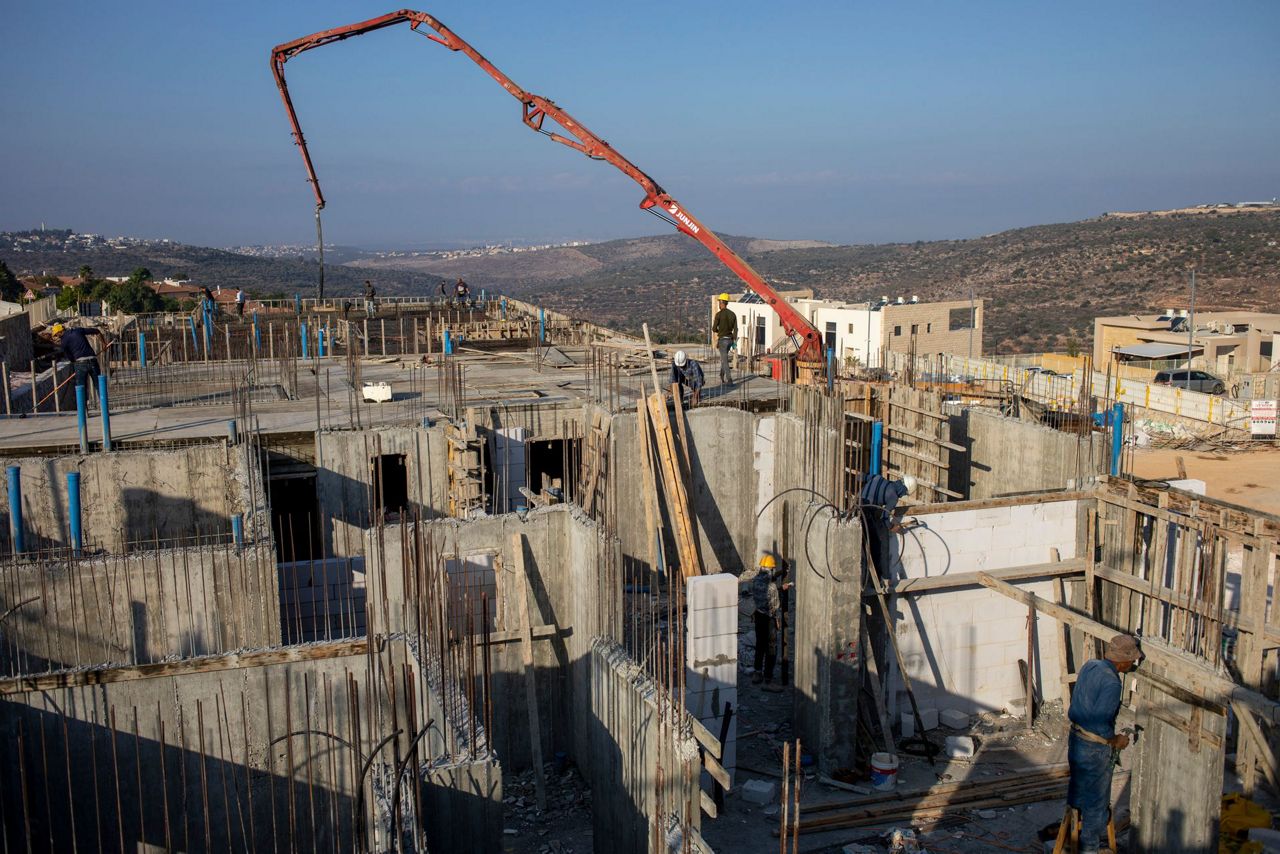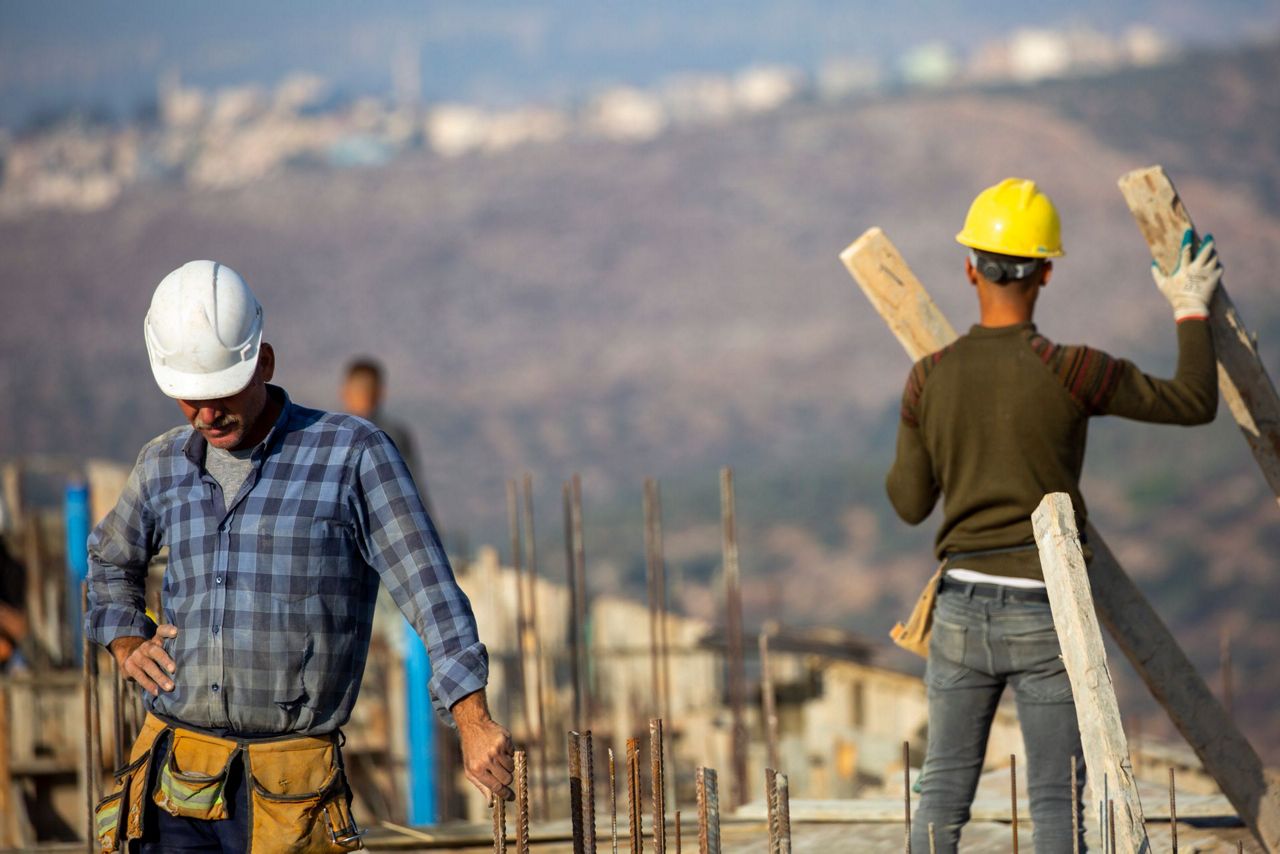JERUSALEM (AP) — Israel approved about 3,000 new settler homes in the occupied West Bank on Wednesday, a day after the United States issued its strongest rebuke yet of such construction. It was the biggest announcement of settlement plans during the Biden administration.
The plans were approved by a Defense Ministry committee, according to a security official who was not authorized to speak publicly and did not provide further details. The anti-settlement group Peace Now also confirmed the approvals.
The decision marked the latest boost for Israel's half-century-old settlement enterprise on occupied lands the Palestinians seek for a state. Successive Israeli governments have expanded settlements, making an internationally backed two-state solution — a state of Palestine arising alongside Israel — increasingly impossible.
Palestinian President Mahmoud Abbas called on the international community to take a “decisive stance” on the Israeli decision, which he said amounted to a "message of disdain for the efforts of the U.S. administration.”
The Trump administration had tolerated settlement growth and abandoned the decades-long U.S. position that the settlements were illegitimate. Israel embarked on an aggressive settlement spree during the Trump years, advancing plans for more than 12,000 settler homes in 2020 alone, according to Peace Now, the highest number since it started collecting data in 2012.
Wednesday's decision was bound to raise friction with Europe and the United States.
Only a day earlier, U.S. Secretary of State Antony Blinken had protested the plan during a phone call with Israeli Defense Minister Benny Gantz, according to a senior U.S. official who was not authorized to speak publicly.
Also on Tuesday, the U.S. State Department said it was “deeply concerned” about Israel’s plans to advance new settlement homes, including many deep inside the West Bank.
State Department spokesman Ned Price told reporters in Washington: “We strongly oppose the expansion of settlements, which is completely inconsistent with efforts to lower tensions and to ensure calm and damages the prospects for a two-state solution.”
Sabri Saidam, a former Palestinian official, criticized the Biden administration, saying it was “almost absent” as Israel pushes ahead with settlement construction.
The settlement approval also seemed poised to test Israel's fragile governing coalition of ultra-nationalists, centrists and dovish parties that oppose settlements after the 12-year rule of former Prime Minister Benjamin Netanyahu.
"Now, everybody knows that this is not a government of change, but this is a government with the same policy as Netanyahu to build more settlements, to deepen the occupation and to take us away from the chances for peace,“ said Hagit Ofran of Peace Now.
The Palestinians seek the West Bank, along with the Gaza Strip and east Jerusalem — areas Israel captured in the 1967 Mideast war — for their future state. The Palestinians view the settlements, which house some 700,000 Israelis, as the main obstacle to peace, and most of the international community considers them illegal.
Israel views the West Bank, home to more than 2.5 million Palestinians, as the biblical and historical heartland of the Jewish people.
Wednesday's approvals were given by the Defense Ministry's higher planning council, which authorizes West Bank construction. Roughly half of those units were given final approval before the start of construction.
The committee was also supposed to approve 1,300 housing units for Palestinians who live in areas of the West Bank that are under full Israeli control, outside the enclaves administered by a Palestinian autonomy government. The discussion was moved to next week.
The Palestinians and rights groups say the 1,300 homes under discussion meet a tiny fraction of the need. Palestinians require military permits to build in the 60% of the occupied West Bank that is under full Israeli control. Rights groups say permits are almost never granted, forcing many residents to build without authorization and risk demolition.
On Sunday, Israel announced construction tenders for 1,355 housing units in the West Bank, the first move of its kind since President Joe Biden assumed office pledging to take a harder line on the settlements. It also appeared to run contrary to the new Israeli coalition government’s own vows to reduce tensions with the Palestinians.
___
Kellman reported from Tel Aviv, Israel. Associated Press writers Joseph Krauss and Areej Hazboun contributed from Jerusalem. Matthew Lee contributed from Washington.
Copyright 2021 The Associated Press. All rights reserved. This material may not be published, broadcast, rewritten or redistributed without permission.




